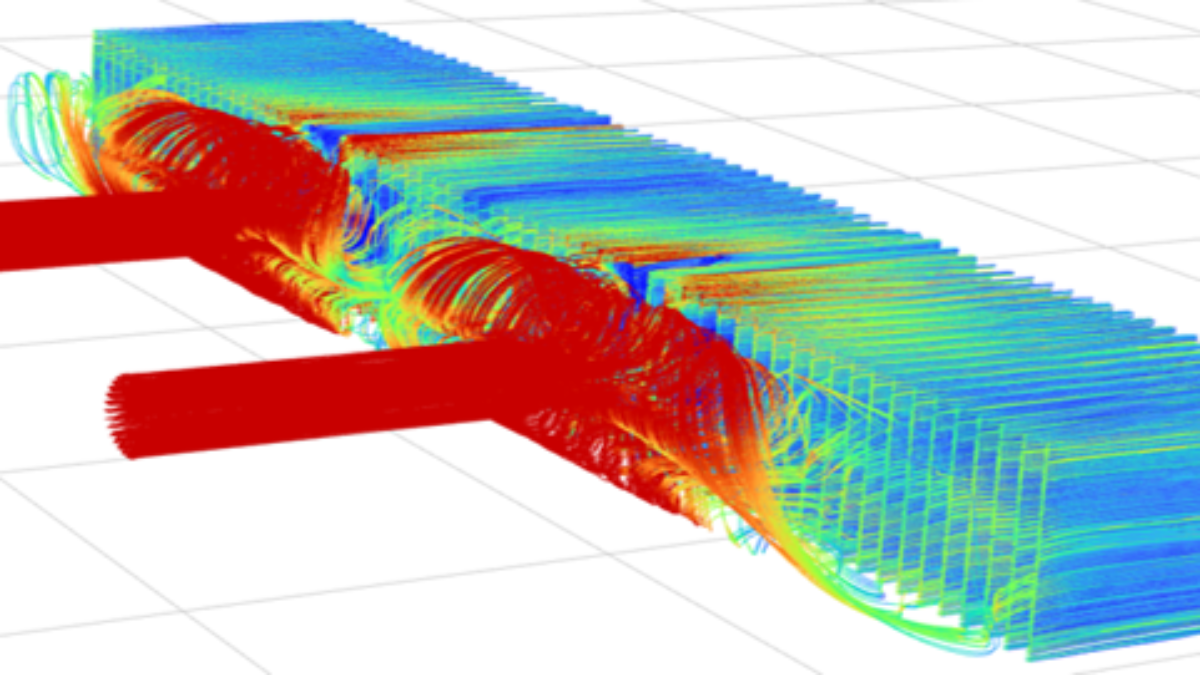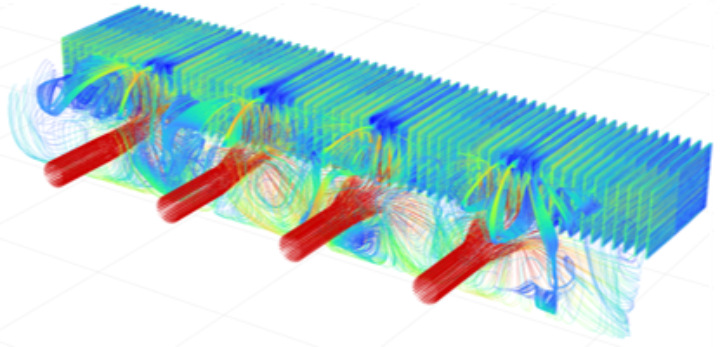Numerical investigation of mixing process in headers of sCO2 heat exchangers (DC12)
Research aims
- To investigate the mixing of sCO2 flows with different temperature in headers of heat exchangers.
- To set-up a numerical model for the mixing plena of heat exchanger, e.g. using OpenFOAM.
- To thoroughly assess the numerical data.
- To derive recommendation for designers.
Application
This project will develop analysis and modelling tools validated by experimental data to improve the understanding and inform systems designers of the effects of transients and off-design and part load operation on the critical system components, namely, turbomachinery and heat exchangers, and on the system operation and integration.
Numerical simulations will be carried out to support the optimization of inlet and outlet headers of heat exchangers:
- No. of outlets and inlets, header geometry
- Simulations with inlet and outlet headers
- Derive acceptance criteria for designers (e.g. max temperature difference)
- Option: perform coupled FEM-CFD analyses
- Improvement of header geometry has a direct influence on HX design (Innovation)
- Strong interaction with designers
More information about the CFD-related research at IKE can be found here.
Earned degree:
- M.Sc. in Mechanical or Mechanical Engineering (or related area). Preference will be given to candidates with a major in energy or related areas
Background (mandatory):
- Thermodynamics
- Fundamentals of Heat Transfer
- Fundamentals of CFD
- Linus/UNIX and Matlab/Python programming
Additional background that will be valued in the selection process:
- Experience in running numerical simulation on Linux clusters or high-speed computers
- Data analysis
- Sensitivity and uncertainty analysis
English language:
- A certified C1 level of English is required
Submit application package (see below) to Prof. Joerg Starflinger joerg.starflinger@ike.uni-stuttgart.de before May 31th 2023, 17:00 h CET.
The Application Package is comprised of:
1. CV Europass (template here)
2. Letter of motivation
3. Analysis of the challenges faced by the energy sector to accomplish Carbon Neutrality by 2050, and the associated needs for technology development (max 3 pages)
4. Short video (less than 2min): why I should be selected for the position. The candidates should address some of the following questions:
- D1: Why did you decide to apply for a position in ISOP?
- D2: What do you expect/want to gain from an MSCA programme?
- D3: How do you think you can add value to an MSCA programme?why I should be selected for the position.
- D4: Summarise your strengths and weaknesses.
- D5: Describe a time when you had to deliver a challenging project. What was your role and what was the outcome?
- D6: Where do you see yourself in 10 years?
- D7: Why should you be selected for the position?
5. Letters of recommendation (not mandatory)
The application package must not exceed 15 Mb
Contact

Jörg Starflinger
Prof. Dr.-Ing.Geschäftsführender Direktor





